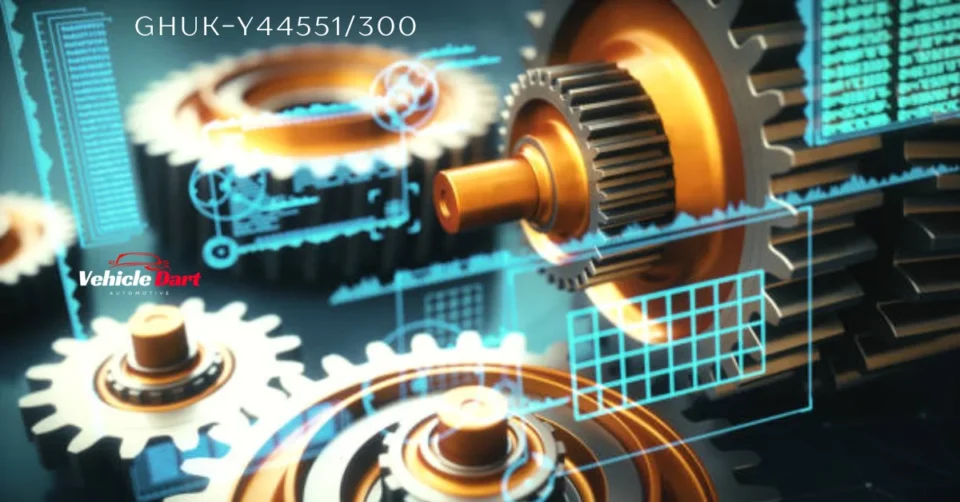Introduction to Ghuk-Y44551/300
Imagine a world where every tiny component fits perfectly, where precision isn’t just an ideal but a standard. Enter Ghuk-Y44551/300—a remarkable innovation in the realm of precision engineering. This cutting-edge technology is reshaping industries and redefining what it means to create with accuracy. Whether you’re in aerospace, automotive, or electronics, understanding the power of Ghuk-Y44551/300 could open new doors for efficiency and reliability. Let’s dive deeper into this fascinating topic and explore how precision engineering is making waves across various sectors.
The History and Development of Precision Engineering
Precision engineering has its roots in the Industrial Revolution. This era marked a shift from handcrafting items to mechanized production. The need for accuracy became paramount as industries expanded.
Early machines relied on basic tools, but advancements soon followed. The introduction of numerical control transformed manufacturing processes in the mid-20th century. Engineers began using computers to enhance precision.
As technology evolved, so did techniques and materials. CAD software emerged, allowing designers to create intricate models with ease. Innovations in materials science also paved the way for stronger and lighter components.
The rise of robotics further revolutionized precision engineering by streamlining assembly lines and minimizing human error. Today’s engineers harness data analytics and machine learning, pushing boundaries beyond what was once imagined.
This continuous evolution showcases an ever-growing commitment to achieving unmatched accuracy across various fields.
Applications of Ghuk-Y44551/300 in Various Industries
Ghuk-Y44551/300 has emerged as a game changer across multiple sectors. In the automotive industry, it enhances vehicle performance and safety through precise components that ensure reliability.
Aerospace engineering also benefits significantly from this innovative technology. Lightweight and durable materials reduce fuel consumption while maintaining structural integrity.
Healthcare applications are particularly noteworthy. Surgical instruments crafted with Ghuk-Y44551/300 allow for extraordinary precision in operations, improving patient outcomes drastically.
In electronics, the ability to produce intricate parts enables more efficient devices. This leads to smaller sizes without compromising functionality.
Renewable energy is another area where Ghuk-Y44551/300 shines. It contributes to the development of high-efficiency solar panels and wind turbines, supporting sustainability goals globally.
With such versatility, it’s clear that Ghuk-Y44551/300 plays a critical role in advancing modern industries.
Advantages and Benefits of Precision Engineering
Precision engineering brings a multitude of advantages that enhance various industries. One key benefit is the high accuracy it offers in manufacturing processes. This precision ensures that parts fit together seamlessly, reducing waste and improving efficiency.
Another advantage is cost-effectiveness. Though initial investments may seem steep, the long-term savings from reduced errors and rework can be significant. Quality control becomes easier with precise measurements.
Moreover, precision engineering fosters innovation. It enables the creation of complex designs that push technological boundaries. Industries like aerospace, automotive, and medical technology greatly rely on this discipline to develop cutting-edge solutions.
Additionally, precision engineering improves safety standards. Well-engineered components minimize risks associated with failures or malfunctions in critical applications.
The flexibility of precision techniques allows for customization tailored to specific needs without compromising quality. This adaptability meets evolving market demands effectively, making it an invaluable asset across sectors.
Challenges and Limitations of Precision Engineering
Precision engineering faces several challenges that can hinder its progress. One major issue is the high cost of advanced materials and technologies. These expenses can limit accessibility for smaller companies.
Another challenge lies in the complexity of design processes. Creating intricate components demands not only technical expertise but also significant time investment. This can lead to delays in production.
Furthermore, maintaining quality control is crucial yet difficult. Even minor deviations during manufacturing can affect performance and safety standards, creating potential risks.
There’s also the growing demand for customization in various sectors. Meeting these specific needs while still adhering to precision standards poses a unique obstacle.
As technology evolves rapidly, staying updated with new techniques becomes essential yet daunting for engineers striving to remain competitive in this dynamic field.
Future Innovations and Potential for Ghuk-Y44551/300
The future of Ghuk-Y44551/300 is brimming with potential. As technology advances, so does the capability of precision engineering systems like this one. We can expect enhanced accuracy and efficiency in manufacturing processes.
Emerging technologies such as artificial intelligence and machine learning are set to revolutionize how we utilize Ghuk-Y44551/300. These innovations will streamline operations, allowing for real-time adjustments based on data analytics.
Moreover, sustainability will become a key focus. Future iterations may incorporate eco-friendly materials and energy-efficient methods, minimizing their environmental impact while maintaining performance standards.
Collaboration across industries will also play a crucial role in advancing Ghuk-Y44551/300’s applications. By integrating insights from various sectors, we can unlock new possibilities that we haven’t yet envisioned.
As research continues to evolve, Ghuk-Y44551/300 stands poised to redefine what precision engineering can achieve in the years ahead.
Conclusion: The Impact of Precision Engineering on Society
The influence of precision engineering, highlighted by innovations like ghuk-y44551/300, is profound. As industries continue to evolve, the demand for accuracy and efficiency grows stronger. This technology not only streamlines processes but also enhances product quality across various sectors.
From healthcare to aerospace, the applications of ghuk-y44551/300 demonstrate its versatility and importance. Precision engineering ensures that components fit together seamlessly, reducing waste and improving overall performance.
Moreover, as businesses strive for sustainability and cost-effectiveness, the role of precision engineering becomes even more critical. It fosters innovation while addressing environmental concerns by minimizing material usage.
As we look ahead, advancements in technologies such as automation and artificial intelligence will likely shape the future landscape of precision engineering. The potential for further developments with tools like ghuk-y44551/300 remains vast.
This field continues to impact everyday life significantly. By enhancing production capabilities and enabling new possibilities in design and functionality, precision engineering is an essential driver of progress in modern society.
The smarter way to grow your business starts here—explore on Vehicle DART.

